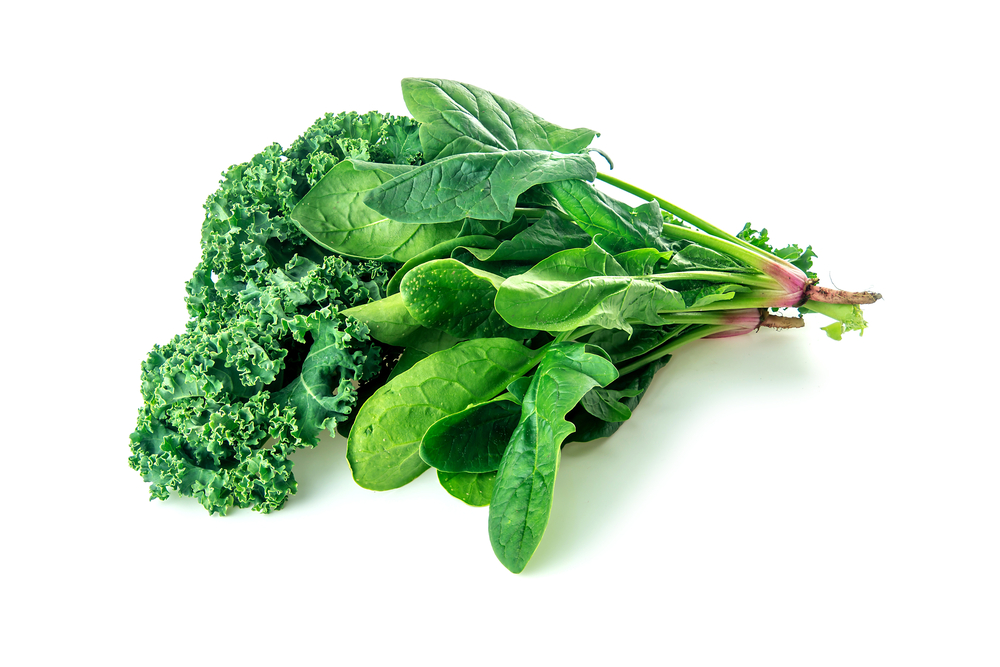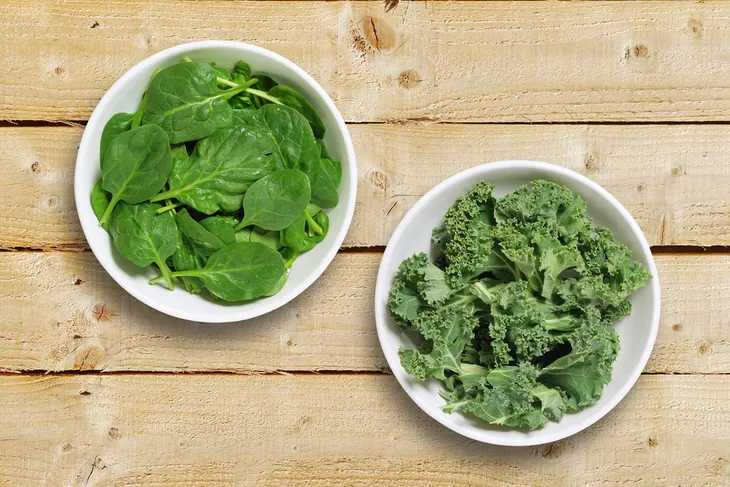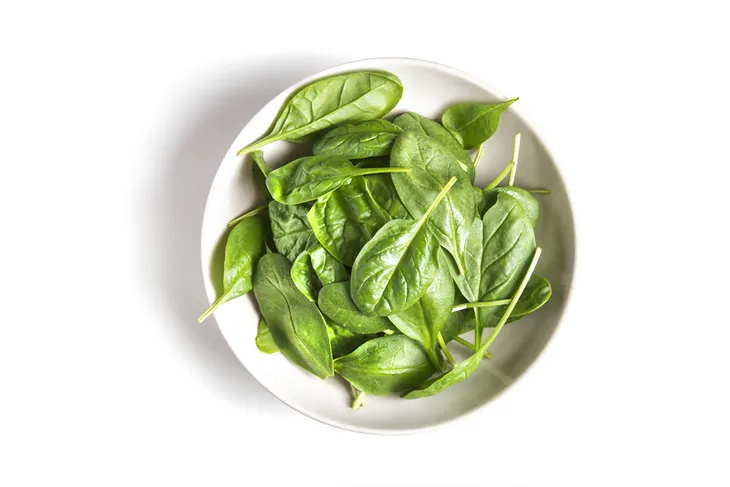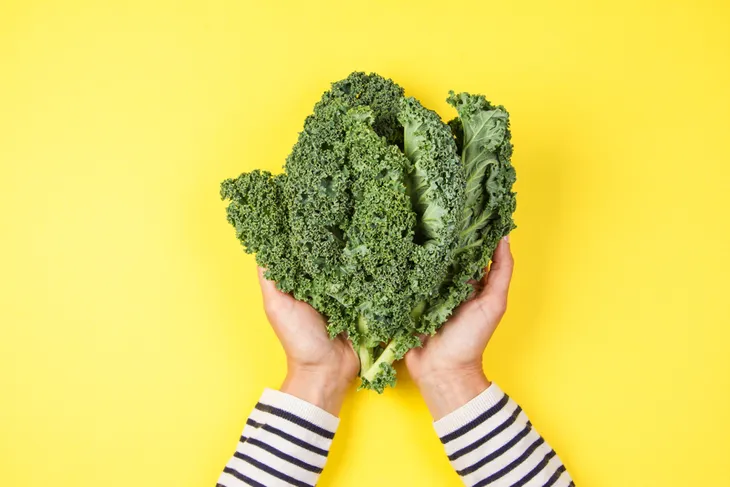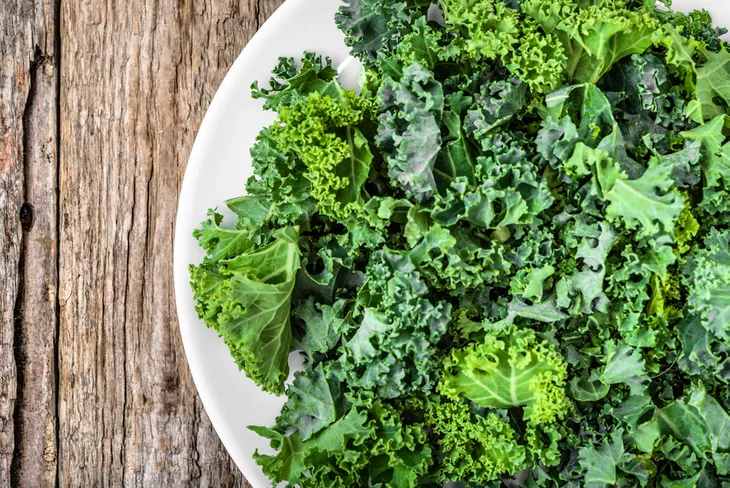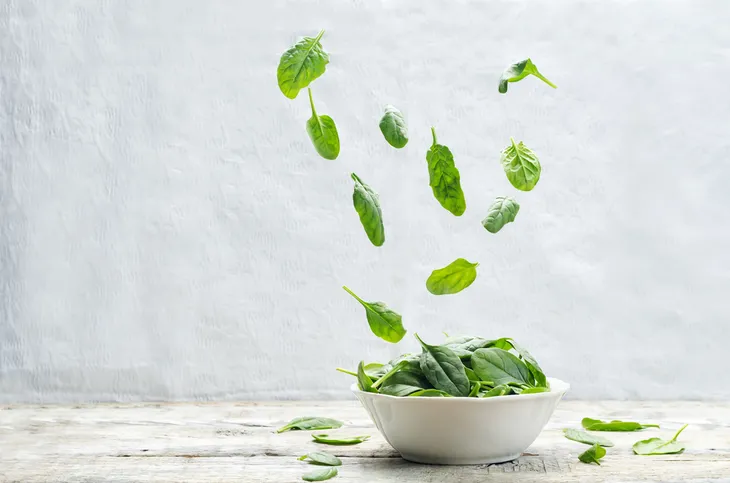Are you faced with a leafy green conundrum at the grocery store or farmer’s market? We know that dark leafy green veggies are good for us, but I get a lot of readers asking if spinach really is the muscle-wielding super food that Popeye purported or if kale should be crowned the king of leafy greens?
You can’t really go wrong with greens of any kind, which is why we should all be eating both of these health foods—as much as possible! But for the sake of fun, let’s compare the nutritional benefits of kale vs. spinach…
Want diet & nutrition content delivered straight to your inbox? Sign up for our exclusive diet & nutrition newsletter!
The Raw Calories
Come on, it’s a little silly to count calories when it comes to greens! However, if you’re counting calories with every crunch and munch, know that you’re chewing double the calories with raw kale compared to the same serving of raw spinach.
However, due to the fact that kale is the denser leaf—you can eat less of it to get the same serving. Remember, spinach might be a lightweight by nature, but kale can score featherweight status pretty quick!
Spinach Nutrition
When it comes to the nitty-gritty nutrition in your greens, spinach is just slightly higher in cholesterol-lowering fiber, bone-strengthening magnesium, and sodium-negating potassium (for those with high blood pressure).
And of course we can’t overlook the fact that Popeye was right when his muscle-bound biceps reached for iron-rich spinach—this leafy green boasts 15-percent of your recommended daily amount according to the USDA’s National Nutrient Database for Standard Reference.
Kale Nutrition
However kale is no chump either—particularly when it comes to calcium. The average serving of kale contains more calcium than milk! Plus, impressive amounts of vitamin A and vitamin K, which prevent blood clots, Alzheimer’s disease, and age-related bone loss.
Don’t forget that kale delivers the goods when it comes to vitamin C. In fact, USDA data shows that kale packs 4 times the antioxidant punch compared to spinach.
Eat Kale for Bone-Boosting Health
When it comes to leafy greens you should be eating a wide variety—as often and as much as possible. Reach for dark, vibrant kale when you need a nutritional infusion of vitamins A, K, and C, particularly women after menopause who often require an increase in bone-boosting vitamin K.
And on a healthy note to vegetarians, vegans, and those who have issues with animal dairy, kale is an excellent, alternative source of calcium for keeping those bones strong.
Eat Spinach for Iron Energy
However, don’t dare overlook the attributes of spinach. This leafy green is no slouch when it comes to more iron, fiber, and magnesium per serving.
Plus, thanks to a milder more versatile taste—mmmm I could really go for a green smoothie—spinach is a worthy of becoming a daily feature in your healthy diet. Eat it in sauces, stir fries, on sandwiches, in omelets, and more!
